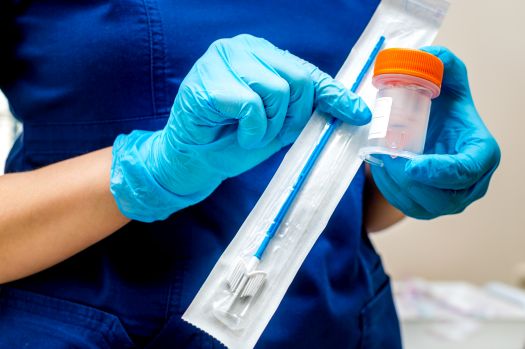Cervical Cancer Screenings
Cervical cancer is cancer that starts in a woman’s cervix. The cervix is the opening of the uterus. It connects the uterus to the vagina. Cervical cancer usually starts with changes to the cells on the cervix. If found early, these cells can be removed to prevent cancer.
Cervical cancer may not cause any symptoms at first. This is why regular screening is so important.
Some symptoms of cervical cancer can include:
- Heavy vaginal bleeding or discharge (more than usual)
- Bleeding after sex, between periods, or after a pelvic exam
- Pain during sex or urination
There are two screening tests that can help prevent cervical cancer or find it early:
- Pap Test (or Pap Smear)- looks for changes in cells that are removed from the cervix.
- High Risk (HR) HPV Test-looks for the types of HPV that cause most cervical cancers. This test is usually done at the same time as the Pap test. Follow up with your provider if your screening results are not normal.
Who Should Get Screened for Cervical Cancer and How Often?
All women between the ages of 21 to 65, including those who have had the HPV vaccine, need cervical cancer screening.
- Women ages 21 to 29 years should have a Pap test every three years.
- Women ages 30 to 65 years can choose a Pap test every three years, a HR HPV test every five years, or a Pap test and HR HPV test every five years.
- Women older than 65 or women who have had their cervix removed for non-cancerous reasons should talk with their health care provider to determine whether they should get screened.
Regular screening can help prevent cervical cancer or find it early, when treatment may work best. Women ages 21 to 65 should talk to their health care provider about cervical cancer screening.
Cancer Services Program covers the following services:
- Pap test
- Pelvic exam
- High Risk (HR) HPV test
If screening tests find something abnormal, diagnostic (testing) services can be paid for by the CSP:
- Colposcopy, biopsies, facility fees, pre- and post-operative procedures, pathology and consultations.
For more information on the Cancer Services program Click Here.




